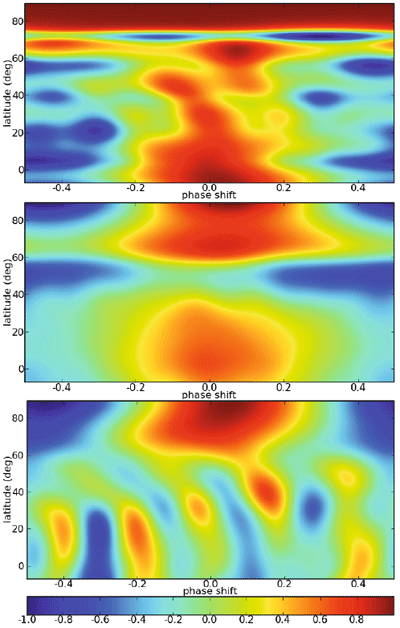Highlight: The rapid rotation and complex magnetic field geometry of Vega (vol. 523)
- Details
- Published on 12 November 2010
The rapid rotation and complex magnetic field geometry of Vega

The discovery of a weak surface magnetic field on Vega, a prototypical normal, intermediate-mass star, was unexpected, as this class of stars was not expected to host detectable magnetic fields. Petit et al. obtained additional spectropolarimetric observations of Vega, which confirm the initial detection of the Vega magnetic field and constrain its large-scale topology. The topology is dominated by a polar region of radial field orientation, with additional magnetic patches at lower latitudes, and is stable on yearly timescales. The relatively complex topology indicates that the field is generated by an ongoing dynamo process, rather than by a fossil nature, and its detailed characteristics favor a dynamo in the radiative envelope of the star rather than in its convective core.


